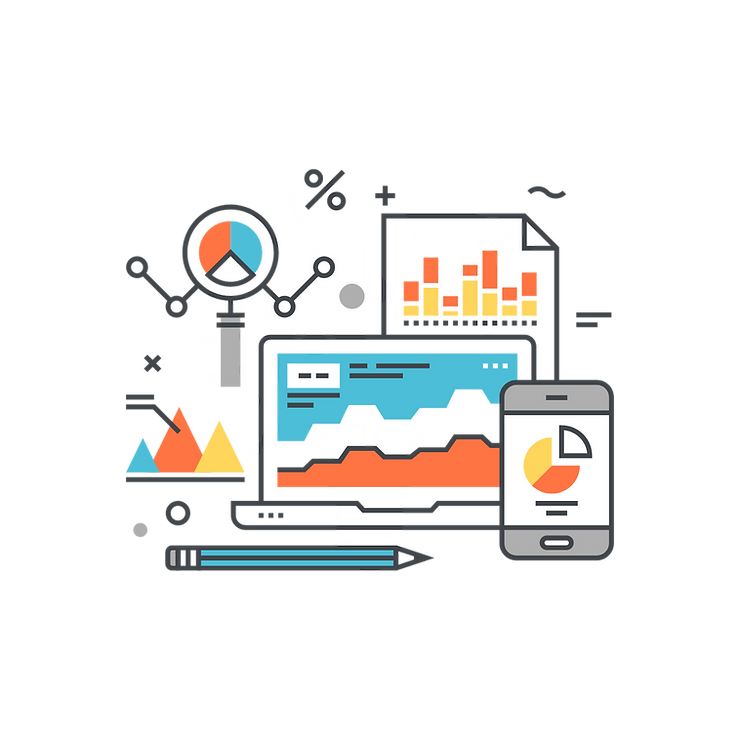
AI in Pharmaceuticals – North America /Europe
- Healthcare and General Service
- October 15, 2024
Artificial Intelligence (AI) – On a Mission to Remake the Pharmaceutical Industry
AI technologies are revolutionising the pharmaceutical sector, which allows the development of more effective medications, acceleration of clinical trials, and the optimisation of healthcare administration. In the realm of drug research, AI stands as a game-changer. Traditional methods are laborious, expensive, plus often plagued by high failure rates. AI systems, empowered by Machine Learning (ML) algorithms, navigate vast datasets, such as molecular structures, genetic information, and clinical data. ML identifies patterns, predicts the efficacy of drug candidates as well as speeds up the discovery process.
Moreover, AI-driven techniques such as Natural Language Processing (NLP) play a pivotal role by extraction of valuable insights from clinical trial data, patents, and scholarly publications. NLP algorithms swiftly analyse large volumes of unstructured text, foster knowledge discovery and enhance decision-making in drug development. This marks a significant stride towards more efficient and informed advancements in pharmaceutical research.
How AI Could Revolutionise Pharmaceutical Industry Globally
According to a Mordor Intelligence report, the AI in Pharmaceutical Market is predicted to grow at a CAGR of 42.68% from USD$ 2.14 billion in 2023 to USD$ 12.66 billion by 2028. The surge in implementation of AI in biotechnology with healthcare is projected to be a significant driver of the market’s rapid rise. Top pharmaceutical corporations take a step to collaborate with AI industry players to utilise AI technology in medication discovery, research, development, together with drug production. Corporations such as Pfizer, Sanofi, GSK, and AstraZeneca either work together with each other or purchase AI technology. As a result, large expenditures by prominent healthcare organisations support the exponential expansion of worldwide AI in the pharmaceutical sector. These firms look to medical AI services to reduce the costs and time necessary for medication development. Below are a few statistics:
· Up to 70% cost reduction in drug discovery
· 50% faster drug development timeline, saving $28 billion annually in clinical research costs
· $54 billion saved in R&D costs
Market Trends
Platforms for AI-Powered Drug Discovery: These businesses specialise in the creation of platforms and majorly employ AI to accelerate the drug discovery process. These platforms integrate AI algorithms to analyse massive amounts of data that includes chemical structures, biological interactions, plus clinical data, to reveal good medicine candidates as well as enhance quality. To boost the effectiveness with success rates of drug development initiatives, it offers various features plus tools, such as molecular stimulation, virtual inspection, and predictive analytics.
Clinical Decision Support Systems: AI-enabled technologies are used to give healthcare practitioners immediate access to data-driven insights and suggestions towards patient care. These systems support the pharmaceutical business to manage clinical trials, choose treatments, keep track of adverse events, plus evaluate the safety of drugs. To aid in clinical decisions, experts use AI algorithms to assess patient data from electronic health records, medical literature, with other sources. This ultimately improves patient outcomes to amplify the effectiveness of healthcare procedures.
Solutions for NLP: Companies focus on NLP building AI tools with algorithms to evaluate as well as extract useful information from unstructured textual data, such as scientific publications, medical records, and clinical trial reports. NLP solutions help with data extraction, literature reviews, knowledge discovery, with medication safety monitoring in the pharmaceutical sector. By automation of the mining of relevant information, these technologies accelerate research operations, ease regulatory compliance, and improve evidence-based judgments based on facts.
Utilisation of AI Algorithms to Improve Medical Imaging / Diagnosis: These AI service firms develop image analysis systems that may automatically detect abnormalities, help in disease diagnosis, and anticipate therapy efficacy. AI-enhanced imaging solutions are crucial to the pharmaceutical industry’s drug development. These help to determine the effectiveness of treatments, along with the course of diseases, together with patient stratification based on imaging biomarkers.
AI-Driven Precision Medicine Solutions: Companies majorly specialise in AI as a result of precision medicine which creates platforms and solutions. This awfully integrates genomic data, patient-specific data, and AI algorithms to enable individualised treatment plans. Based on a person’s genetic profile plus clinical data, these solutions help identify the best treatment approaches, forecast drug reactions, and suggest possible pharmacological targets. These businesses want to enhance the quality of patient care along with treatment outcomes by combining AI with precision medicine.
North America AI – Empowerment of the Pharmaceutical Industry
According to Precedence Research, North America dominated the global marketplace towards the AI in pharmaceutical industry in 2023, with a market share of around 45%. The region offers a favourable regulatory environment that aims to foster the use of AI in the pharmaceutical business. Furthermore, multiple renowned pharmaceutical firms are here to invest extensively in the region to improve the position in the biopharmaceutical scene. The fast development of biotechnology and biologics possesses a beneficial influence on market growth in North America.
Europe AI – Generation of New Insights in the Pharmaceutical Sector
In Europe, countries like France, Germany, Italy, Spain, the UK, and others will witness AI in healthcare market grow by 49.3% from 2019 to 2027 reaching a market value of USD$ 3.6 billion by 2030. This rise is due to variables such as a large number of people, particularly those with chronic conditions, advanced healthcare systems, and political opposition to AI in healthcare.
The UK, in particular, has advanced healthcare and has made changes to improve patient care. The country has created the National Health Service (NHSX) to make rules and best practices by means of technology in healthcare. NHS AI Lab was also initiated to work with the government, healthcare providers, academics, and tech companies to solve healthcare problems. More people use digital health tech in Europe, and there are more AI startups, too, which tends to make the market grow even more.
The European Medicines Agency (EMA) has finally added to the discussion on AI and ML by producing a brief reflection paper on the use of these technologies across the life cycle of a medicinal product.
The goal of this reflection paper is to highlight the scientific principles that must be considered at each stage of a pharmaceutical product’s lifetime when AI and ML approaches are used. Stakeholders are invited to provide input on the draught reflection paper, highlighting risks and opportunities associated with the use of AI/ML in the pharmaceutical business until December 31, 2023. The EMA intends to evaluate the feedback received in order to develop the reflection paper, besides providing further stakeholder guidance. Meanwhile, the use of AI/ML in the development and use of pharmaceutical goods will continue to evolve.
Conclusion
In conclusion, the transformative influence of AI in the pharmaceutical sector extends across both Europe and America, reshaping healthcare administration, hastening clinical trials, and refining drug production efficiency. The conventional and expensive approaches to drug research are yielding to the innovative advancements brought forth by AI.
To unlock the full potential of AI, organisations must invest in robust infrastructure, encompassing hardware, software, and data storage capabilities. Additionally, allocating resources for AI talent, including data scientists, ML experts, and AI researchers, is crucial. The successful integration of AI into research, development, and operations requires a solid foundation. Collaboration between academic, commercial, and governmental entities is vital for advancing AI-powered pharmaceutical solutions. Academic institutions play a crucial role in research, algorithm development, and nurturing the next generation of AI professionals. Governments can facilitate collaboration, offer financial support, and create a conducive environment for AI research. Businesses contribute by providing real-world data and domain expertise.
Through fostering collaboration and unlocking the full potential of AI, the pharmaceutical industry stands poised to accelerate breakthroughs in drug development, clinical trials, personalised treatment, and healthcare administration. This marks a pivotal moment in shaping the future of pharmaceuticals with the revolutionary impact of artificial intelligence.




